Jula e Watan: Sarhad Key Iss Par (Banished to Exile: From this Side of Border) Vol. 2
Author= Khaliq Parvez
Publisher= Mir Sons Publications, Baramulla Kashmir.
Year of Publication= 2012
Pages= 396 + 16 colored pages (snaps)
Price= Rs 500
Reviewed by Mushtaq-ul-Haq Ahmad Sikander
The year 1947 brought Freedom to India and led to Creation of Pakistan. Now the inhabitants of these two countries were free to exercise the sovereignty within their respective nations. But the same year brought in its wake untold miseries for the State of Jammu and Kashmir which got divided among these two nations. This division and later on other events became a bone of contention between the two countries of India and Pakistan. These contested claims over Jammu & Kashmir spelled a pall of miseries, vulnerabilities and atrocities on the inhabitants of this unfortunate land. One family got separated from other and one brother remained inaccessible to other, despite belonging to the same State that fate had rendered divided, hence illegal for each other.
The book under review by the seasoned journalist, poet and writer Khaliq Parvez revolves around this divide, which rendered the natives of Jammu & Kashmir refuges and migrants in their own State. Khaliq Parvez is one such soul who spent more than seven years in exile as a refugee when he was pushed to Pakistan Administered Kashmir popularly known as Azad Kashmir. That part of his story has been dealt in the first volume of the book that I reviewed a few years back. This second volume carries the story forward, and deals with various aspects of his life.
In his Introductory words to this book, Chief Editor of Urdu Weekly Ahtisaab, Alif Meem Azad, points out, “It would not be an exaggeration to state that the substance contained in the book will make it sell like hot cakes and everybody will like it. To witness Jula e Watan as a record and nostalgia of Parvez’s life who is a renowned writer, journalist and poet would be surely wrong because the canvass of the book is quite wide and diverse”. The book surely proves worthy of these words.
In his Foreword to the book, author Khaliq Parvez, states that the fervent requests by his readers and friends prompted him to pen down the second volume of the book whose idea he hadn’t previously conceived. The events till year 1993 are dealt in this book and work on the third volume is going on. The political and other isms that have cropped up since 1960s are dealt in this book. The Preface also laments about the fact that most Kashmiri refuges and migrants died a painful and dejected death in Pakistan and Azad Kashmir, where they always longed for Kashmir. Parvez also laments about the fact that “he has always felt a vacuum in the politics of the State. This vacuum is responsible for political waywardness and obstructs reaching to a logical political decision and conclusion. The biggest vacuum is that Muslims aren’t united, that has given rise to division and sectarianism. This disunity has further led to division of the society and people under various pretexts and ideologies. The day when the Muslims of this state will get united, I think will bring good news of a new dawn and era” (P-17-18)
The book starts with Parvez’s visit to Delhi to meet his brother on visa alongwith two other friends. But he is surprised to meet his Pandit friend who has come down from Kashmir to meet him and he insists him to stay back and come to Kashmir. Despite their religion being different no love seems to be lost between the two friends. But later on we come to know that the Pandit friend who was responsible to make his stay possible and permanent in Kashmir, after some decades finds himself a refugee when he migrates to Jammu after the initiation of armed insurgency in Kashmir in early 1990s, but that time Parvez isn’t successful in persuading his friend to stay back. Various events during his stay in Delhi are dealt in the subsequent chapters and each chapter is a worth read. He very well depicts how Eid in Kashmir is quite different from Eid in Delhi.
Later on after much cumbersome process and efforts of his friend his exile comes to an end and he is allowed to stay in Kashmir and thus he joins back his family, meanwhile his parents have died. As we read on we come to know about Parvez’s acquaintance with the stalwart resistance leader of Kashmir, Muhammad Maqbool Bhat, and he throws light on various hidden aspects of Bhat’s life. In various chapters he deals with his political thought and how after he returned to Kashmir, his meeting and Bhat’s stay at his home. But on the subsequent arrest of Bhat, Parvez is also illegally detained, and interrogated for weeks.
Later on Parvez adventurously relates his second border crossing to Kashmir. During the first one he was forced to cross the border, but this time he willingly sneaks through the divide and pays a visit to his ailing parents. This time he also relates a lot of adventures and exciting events that he encounters while sneaking to Kashmir as well as on his return. This time he seeks permission from his parents to stay in Azad Kashmir. The author also deliberates on various phases of his life in Azad Kashmir and other parts of Pakistan. He very well brings to fore the enthralling beauty of Muree, treating a schizophrenic patient and how he declined an offer to settle in Sindhi and preferred to live in Rawalpindi because he loved it as it resembled to his native place of Baramulla and there were also a few Kashmiri families residing there.
Parvez being a political activist though later on a passive one, but is quite factual when he acknowledges that he couldn’t achieve anything in politics according to his own will, plans and dreams (P-303). Politics and political events are dealt with vigor in this book. Also in a conflict situation everything becomes over politicized and for a keen observer of politics like Parvez, politics has a central place, hence the book is the reflection of the same. This book deals with various political events that have been taking place in the State of Jammu and Kashmir and their analysis too. Also various unknown aspects of Muhammad Maqbool Bhat have been brought to the fore too. He verily catches the mood of the Kashmiris during the Ganga Hijacking event, Shimla Agreement, Creation of Bangladesh and its impact on Kashmiris, Indira-Abdullah Accord, Sheikh Abdullah, his reign that was also a basis for Indo-Pak enmity and subjugation of Kashmiris. The elections of 1987 in which mass rigging was undertaken by the State, initiation of the armed struggle, flight of Pandits, formation of Hurriyat Conference, surviving miraculously in various attacks of terror, and a lot of information that keeps the reader glued to the book.
Alongwith an analysis of Political events, the political and religious history of Parvez’s birth burg Baramulla is also recorded. A deep analysis of various religious organizations and personalities add to the diversity of the book. A documentation of various socio-religious organizations like Idarah Falahudarien has also been recorded. Their selfless and dedicated work is praised by the author. Pavez lucidly depicts how the communal harmony of his birth burg is a factual reality that he is proud of. One of the aspects of Parvez that this book brings to the fore is the writer embedded in him, who had been sharpening his pen during his exile too. After his return he continued to write columns commenting on political events but shied away from practical politics. Parvez is credited to having established the first Urdu weekly of Baramulla by the name of Kamraz, that stopped its publication after the initiation of armed insurgency in Kashmir because of logistic and practical problems, because the new environment had thrown the life out of gear. The weekly was printed in Srinagar but due to frequent curfews and clampdowns, its publication, maintaining deadlines, hitting stands became difficult, hence it ceased to exist. One interesting story is related with the weekly, because after its publication stopped one day a mysterious person appeared at Parvez’s home stayed with him for one night and requested him to accept some money in order to revive the weekly. But Parvez turned down his request and the reality that Press was no longer free in Kashmir dawned over him.
The book is a very nice read and it combines the genre and style of autobiography, travelogue and history together, that keeps the mystery alive with each new page and the reader’s thirst remains unquenched till he finishes the book. With these positive aspects of the book, there are certainly some views that need to be contested, like claiming the creation of Bangladesh to be a result of Ganga Hijacking (P-225) is a far fetched one. It could have acted as a catalyst but it was not the solitary reason for the creation of Bangladesh. Also to state that the Libyan guerilla leader Omar Mukhtar fought against Greeks is wrong (P-324), he fought the fascists of Italy led by Mussolini. Also ten militants weren’t released in exchange of Rubiya Sayeed (P-327) but only five were. This book is a serious read for anyone interested in Kashmir issue and we look forward for the next volume and also pray for more power to his pen.
Mushtaq-ul-Haq Ahmad Sikander is Writer-Activist based in Srinagar, Kashmir and can be reached at sikandarmushtaq@gmail.com.



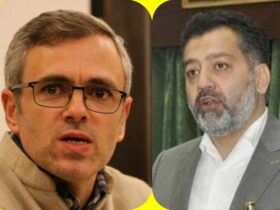
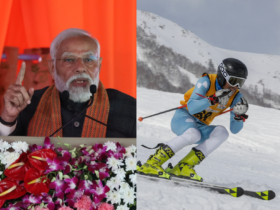

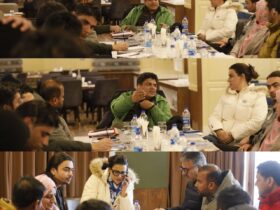
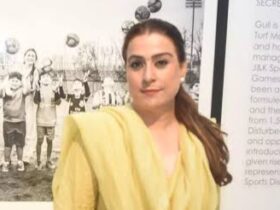
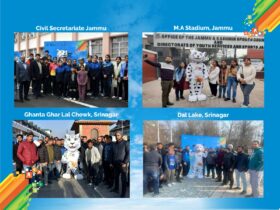
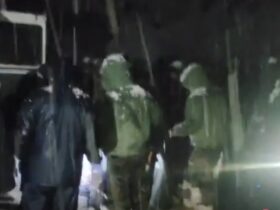
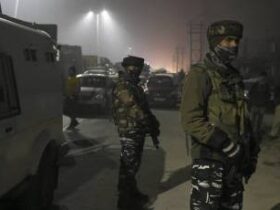
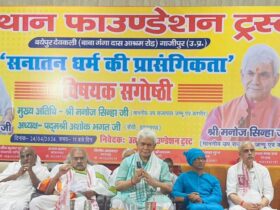
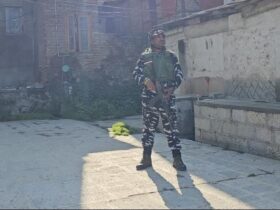
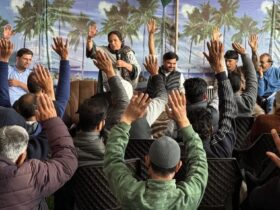
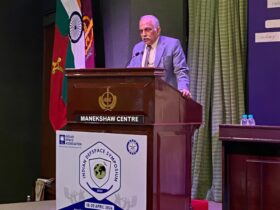
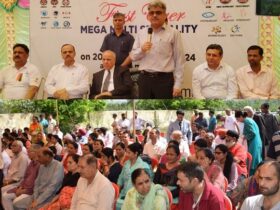
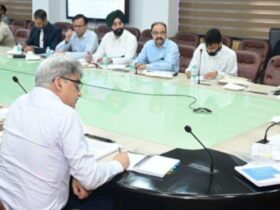
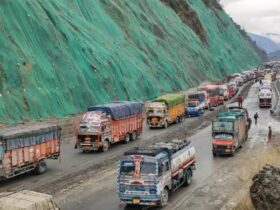
Leave a Reply